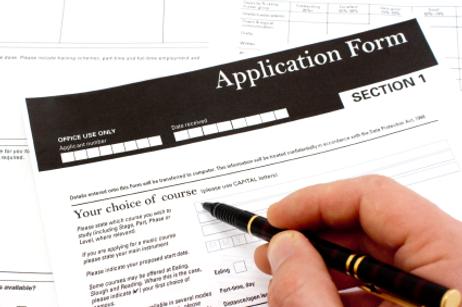While colleges and universities have new requirements, new standards, and new methodologies, one element has held true to the test of time: colleges want to see students’ writing!
Today, almost all major universities and colleges require students to submit either an optional or mandatory application essay. These essays can range in topic, length, and quantity, but they’re all aimed at the goal of discovering whether or not a student can coherently, effectively, and intelligently convey his or her ideas.
As Quintessential Careers supports, “Gaining entrance to just about any college continues to get harder as more and more applicants are applying for a limited number of spaces. How can you improve your chances of being admitted to the college or university of your choice? By writing a stellar personal essay as part of your college application.” As some students struggle with this writing process, public school programs offer students a variety of moderate to extensive support.
College Application Essays: Opening or Slamming the Door
While an application resume and informational transcripts certainly reveal factual information about a collegiate candidate, colleges today are seeking to discover more personal elements about potential students. Schools are no longer focusing solely on the academic and/or extra-curricular abilities of students; instead, colleges desire to better gauge the types of students they are choosing to admit to their institution. As Quintessential Careers further reveals, an application essay “Maybe only 500 words, but the admissions essay(s) portion of a college application can mean the difference between acceptance and rejection. How you write your personal essay shows the admissions committee why you are different from everybody else. It provides information about you that test scores, grades, and extracurricular pursuits just cannot.”
Finding School Support
College Prep Programs
As a rising number of high school students attend their public school classes with the intent of moving onto college, a greater majority of public high schools now offer college prep courses. College prep courses are specifically designed to teach students about the core concepts, ideologies, and practices of a higher-education institution.
For example, one New Jersey public high school, Hill Side, has created a variety of college prep programs to help guide students towards the greater intellectual and academic challenges that lie ahead: “Unique, goal-oriented programs have been implemented to empower our students to reach their maximum potential. Flexible progressive course work and an innovative curriculum provide opportunities for our students to become intellectually astute, technologically aware, and socially adept citizens who are able to successfully function and prosper in an ever-changing community and global economy.”
To help students prepare for the many challenges of college, while also exposing students to the writing styles and concepts that will be expected of students in college, college prep programs across the country allow students to have access to academically rigorous opportunities. Adding to this, the college prep programs in public schools often require students to write their college application essays in class. Therefore, a student may leave a college prep course with his or her application essays completed prior to their senior year of high school.
This video looks at college prep courses.
Public School Writing Programs
Alongside college prep courses, many public schools have also implemented specific writing programs to provide students with diverse and comprehensive instruction and support. For example, North Carolina Public Schools (NCPS) have unified their curriculum to adhere to a state-wide writing plan. This writing plan focuses on research-based practices to provide students with a variety of writing practice opportunities. For example, teachers in North Carolina Public Schools are encouraged to model how to elaborate in their own writing. As NCPS explains, “Students may need to see effective use of elaboration in order to use it in their own writing. By selecting a piece of writing in the same genre of the assignment, the teacher can create an ‘unelaborated’ version to help students see the difference that the elaboration makes. Or, students can collaborate to ‘elaborate’ the weak version as a way of learning how to take the bare bones of a paper and add flesh to it.”
With programs that are specifically designed to improve student writing, students can learn how to write by engaging in a scaffold-based design. As such, when college application essays are impending, students have access to their writing program experiences and writing teachers for support.
College Guidance with Public School Counselors
In addition to college prep courses and writing programs, public schools also provide all students with access to counseling staff. The counseling staff is intended to guide students both personally and academically; therefore, all students have the right to speak with their designated counselor about collegiate goals, concerns, and issues. If a student is in need of additional writing help and/or application assistance, counselors have access to a variety of tools and resources to encourage each student’s individual success.
Questions? Contact us on Facebook. @publicschoolreview















